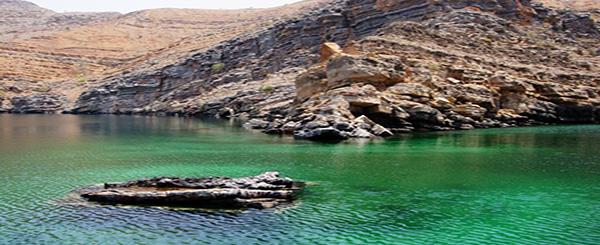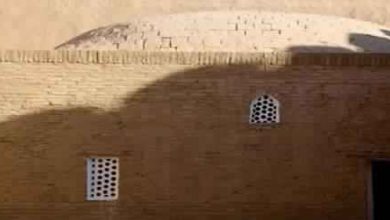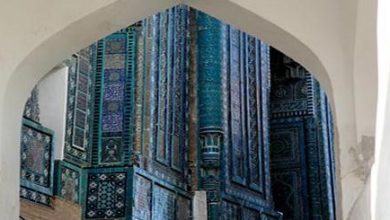UMAR IBN AL-KHATTAB

Respect of Allah:
Umar had such a deep respect for Allah that he was always very humble and filled with humility. It was his fear of the question of “what will you say to your Lord” that motivated all his actions. Hence he spent the rest of his life trying to atone for his persecution of the Muslims prior to accepting Islam himself.
Umar was only concerned about being saved from the fire of Hell and once said that all his good deeds not be recorded for him provided that he be saved from hell as neither having any extra good nor bearing any evil. Even when he was given glad tidings that he would be admitted into Paradise, he remained in awe and full of respect of Allah. He had always been a hard and severe person, but it was on himself that he was the hardest.
He always saw how the Messenger (PBUH) spent his nights in prayer, some days in fasting and in fighting for Allah even though he knew that Allah had forgiven all his sins. He once asked the Prophet (PBUH) why he was doing all this. The Prophet (PBUH) answered “Then, should I not be a thankful servant of Allah?”.
THE CALIPHATE RULE
We shall not go into the political detail surrounding Umar’s appointment as the second of the Rightly Guided Caliphs. However, as Abu Bakr lay on his deathbed, it was general consensus that Umar was the fittest person to be appointed as the next Caliph. There were however, some reservations on account of Umar’s colourful temper, in that he would not be able to display the moderation necessary to lead the Ummah. Abu Bakr observed that Umar’s display of severity was meant to counteract his leniency, and felt confident that Umar would be more moderate in his opinions if the responsibility of government fell on his shoulders.
One of His Earliest Speeches:
The following are excerpts from his inaugural speech,
“The mantle of Caliphate has fallen on my shoulders. I swear it before God that I never covered this office. I wished that it would have devolved on some other person more worthy than me …
In the performance of my duties, I will seek guidance from the Holy Book, and will follow the examples set by the Holy Prophet SAW and Abu Bakr. In this task, I seek your assistance. If I follow the right path, follow me. If I deviate from the right path, correct me so that we are not led astray.
Now brothers I offer a few prayers and you say Ameen to them.
O Allah, I am hard, make me soft to promote the Truth, to comply with your injunctions and to aspire for a better life in world hereafter… O Allah, soften my heart for the faithful so that I attend to their needs with a sense of dedication… O Allah give me the power of self criticism and self assessment …”
How far our leaders are today from this shining display of humility by Umar before his people!
When he assumed office, Umar realised that he was more feared than loved. In the first Friday sermon after he was appointed the Caliph, he appealed to the congregation, explaining that during the lives of the Prophet SAW and Abu Bakr, he assumed upon himself the role of counterbalancing their softness. He went on to say:
“O people, you have some rights on me which you can always claim. One of your rights is that if anyone of you comes to me with a claim, he should leave satisfied. Another of your rights is that you can demand that I take nothing unjustly from the revenues of the State. You can also demand that I fortify your frontiers and do not put you in danger. It is also your right that if you go to battle I should look after your families as a father would do while you are away. O people, remain conscious of Allah, forgive me my faults and help me in my task. Assist me in enforcing what is good and forbidding what is evil. Advise me regarding the obligations that have been imposed upon me by Allah.”
And he spent the rest of his life trying to fulfil his pledge to his people.
Creation of Government:
Umar created a unitary government to rule the entire empire. For each province, a governor was appointed by Umar. The appointee was usually some one who did not crave the position. He organised a group with responsibilities for revenue, military, security, treasury, his office and the chief judge.
He used to give the following general order to his governors:
“Remember, I have not appointed you as commanders and tyrants over the people. I have sent you as leaders instead, so that the people may follow your example. Give the Muslims their rights and do not beat them lest they become abused. Do not praise them unduly, lest they fall into the error of conceit. Do not keep your doors shut in their faces, lest the more powerful of them eat up the weaker ones. And do not behave as if you were superior to them, for that is tyranny over them.”
The Great Famine:
638AD was one of the most difficult times during Umar’s rule. The famine spread far and wide throughout Arabia. He organised for rations to come in from Syria, Palestine and Iraq. Once the rations arrived Madinah, he sent his people to re-route the food caravans to go deeper into Arabia to bring food to the people. For people who were displaced and had came to Madinah for help, Umar hosted a dinner every night for everyone. Some accounts said that there were over 100,000 people at the dinners.
The Great Plague:
639AD was another difficult time. Just as the famine was ending a great plague was spreading in Syria and Palestine. When the plague was over, Umar went to Syria to re-organise the administration as so many of the governors had died from plague. He never waivered in his duty to the Muslims.
Other Events:
It is impossible to categorise Umar’s rule in a few short pages, but the following examples of Umar’s outstanding leadership have been recorded:
• Once a woman brought a claim against Umar. When Umar appeared on trial before the judge, the judge stood up as a sign of respect. Umar reprimanded him saying “This is the first act of injustice you did to this woman”.
• Umar insisted that his governors live simple lives, keep no guard at their door and be accessible to the people at all times and he himself set the example for them.
• Many times foreigners found him resting under a tree or praying in the mosque among the people. It was difficult for them to distinguish which man was the Caliph. He used to go about at night in the streets of Medina to see if people needed help or assistance.
• Once, he was delayed in attending Friday prayers once because he had washed his shirt and had to wait for it to dry because he had no other shirt. How frugal was the Caliph when he only had one shirt.
• When receiving a gift of sweets from his governor in Azerbaijan, he inquired if all the people there ate the sweet. The answer was no. Umar then made the following order to the governor “Do not satisfy yourself from any kind of food until all the Muslims eat their fill from it before you”.
• He once stood guard in the night with a companion to watch over some travellers. A baby was crying but the mother was unable to make it stop. Umar asked what was wrong. She said that the baby refuses to wean. And he asked why she would want to wean her baby who was still young. She replied without knowing who he was that “Umar only prescribes a share of the Treasury for the weaned ones”. Umar was so miserable at this statement. At dawn prayer, his voice was almost incomprehensible from his weeping. Umar felt himself having wronged those babies who may have died from being weaned too early. He then ordered that a share of the Treasury be prescribed for every born Muslim child.
• Umar was very critical of his family in case they are seen to be abusing their status because of their relationship to Umar. Even when what they did was legal, he was still angered.
• Umar had a precept: “If any of you saw any of your brothers committing a slip, you should (screen him and) help him. You should ask Allah to repent on him and you should not assist Satan against him”. This would prevent back-biting and gossiping – two of the most common sins.
Hence, the short examples above hopefully show what a leader of distinction Umar was and how merciful, caring, principled, thoughtful and God fearing he was. Here was a man who was so worried of displaying the smallest injustice, the smallest suspicion, the smallest oppression all because he was preparing himself to answer the question “What will you say to your Lord later”.
HIS DEATH
Umar was violently stabbed six times at the time of the morning prayer by a Persian slave named Firoz. Unconscious and bleeding profusely, he was then carried home. When he regained consciousness, he asked who his murderer was. When told, he said “Praise be to God that I have not been murdered by a Muslim.”
Knowing that his death was imminent, he asked his son Abdullah to beg Aisha’s permission for his burial by the side of Muhammad SAW and Abu Bakr. Aisha wept as she came to know that Umar was on his deathbed. She said “I had reserved this place for my own burial, but I give Umar precedence over myself. Let him be buried there.” When Umar was told of this, he said, “God bless Aisha. She has fulfilled my greatest wish. Now I can die in peace.”
Even in the final leg of his life, he was still concerned about the Ummah. Here was a man who had beaten a slave girl for her acceptance of Islam only to become a Caliph and one of the greatest Muslims that ever lived. He is a shining example of how Allah is the owner of the hearts, for the same man who set out with sword in hand to kill the Prophet SAW, has been laid to rest beside him in Madinah, and will be one of his Companions in jannah.
Al Bukhari carries a tradition according to which the Prophet SAW said that there was to be no prophet after him, but if there were to be no bar to such prophethood, Umar would have been the prophet. That was the highest accolade that the Prophet SAW could have paid to Umar.
May Allah be pleased with him.
Acknowledgement
Most of the information for this work has been obtained from:
“The Successors of the Messenger (Allah’s Blessing and Peace be upon Him)” authored by Khalid Muhammad Khalid (and translated into English by Muhammad Mahdi Al-Sharif)
“The Sealed Nectar” by Shaikh Safiur Rahman Mubarakpuri/Abdul Malik Mujahid
“Men and Women Around the Messenger” by Sa’d Yusuf Abu ‘Aziz
“4 Rightly Guided Caliphs” – Al Khawarizmi compilation




